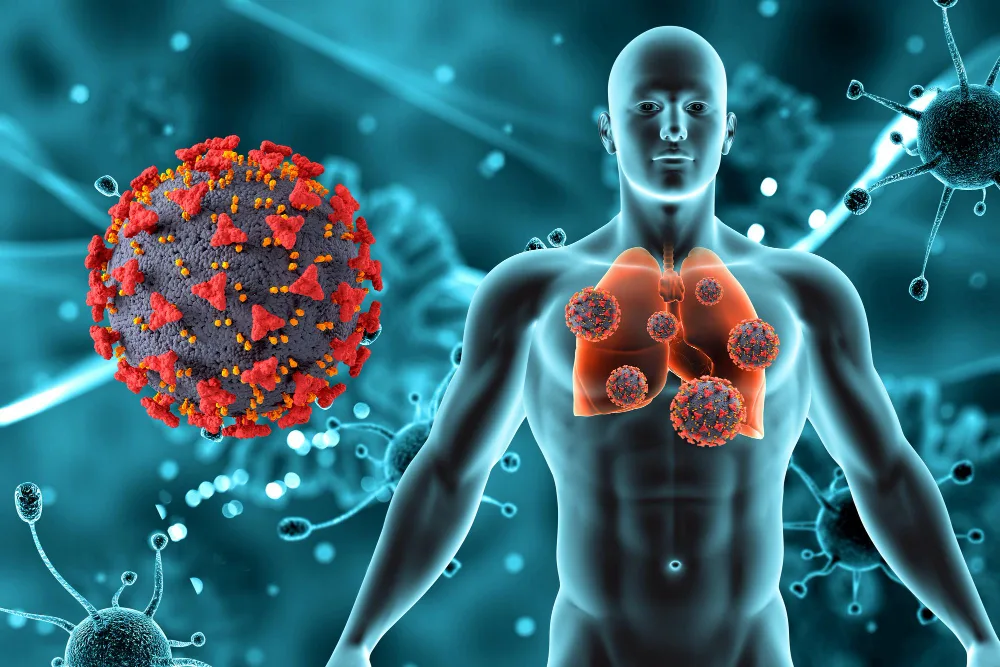What is Bronchiectasis ?
Bronchiectasis is a long-term condition where the airways of the lungs become widened, leading to a build-up of excess mucus that can make the lungs more vulnerable to infection. The most common symptoms of bronchiectasis include: a persistent coughing, with large amounts of mucus.
Bronchiectasis may result from an infection or medical condition, such as pneumonia or cystic fibrosis. Mucus builds up and breeds bacteria, causing frequent infections.
what are the symptoms ?
Symptoms are daily cough that occurs over months or years and daily production of large amounts of phlegm.
- Pain in the chest area.
- Cough can be chronic, with blood, or with phlegm
- Shortness of breath, sinusitis, or wheezing
- Whole Body fatigue or inability to exercise
- Also common phlegm, recurrent infection, deformity of nails, or weight loss.

What are the causes ?
Bronchiectasis is often caused by inflammation or infection in the airways that keeps coming back.
- Due to Allergic lung diseases becomes chronic
- Sometimes it may affect in childhood days after having a severe lung infection or inhaling a foreign object. Breathing in food particles can also lead to this condition.
- Due to asthma or chronic obstructive lung disease (uncommon)
- Cystic fibrosis, a disease that causes thick, sticky mucus to build up in the lungs
- Due to autoimmune disorders, such as rheumatoid arthritis, inflammatory bowel disease
- Due to leukemia and related cancers
- Due to immune deficiency syndromes
Treatment
The first ever recommended treatment in case of Bronchiectasis is self care and preventative measures.
- Treatment may include physiotherapy and medication, such as antibiotics and drugs to help loosen mucus.
- Various Therapies like Physical Therapy, Pulmonary rehabilitation and Airway clearance technique, Oxygen therapy
- Supportive care
To prevent this reduce your risk by promptly treating lung infections.